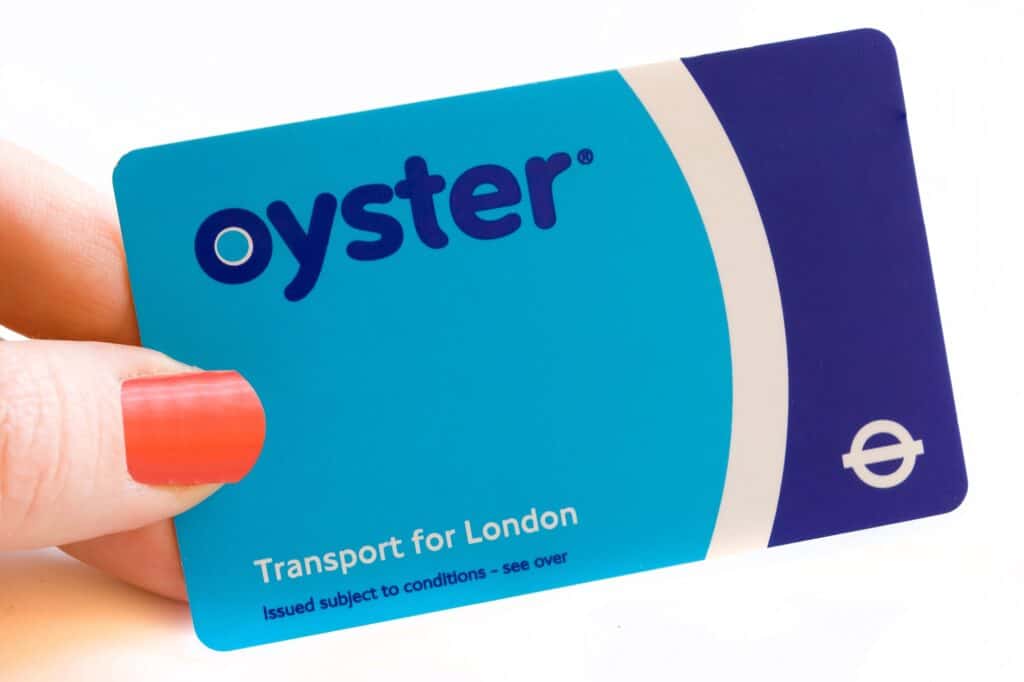Need to know how to save money when moving to Romford? This comprehensive guide covers essential tips on housing, utilities, and daily expenses to help you move on a budget. Whether you’re a first-time mover or looking to optimise your finances, these practical strategies will ensure you make the most out of your resources. From understanding the cost of living to leveraging local deals, we’ve got you covered.
Key Takeaways
- Understanding Romford’s cost of living, including housing costs, utility bills, and daily expenses, is crucial for effective financial management.
- Money-saving strategies such as budgeting, leveraging local deals, and reducing public transport costs can help new residents manage their finances efficiently in Romford.
- Long-term financial planning, including setting financial goals, building a savings account, and investing wisely, is essential for ensuring economic stability and preparing for future uncertainties.
Understanding Romford’s Cost of Living
The cost of living in Romford comprises various factors such as housing prices, utility bills, and everyday expenses. Grasping these costs is a critical initial step towards effective financial management for newcomers. Compared to central London, Romford offers a more affordable living experience, but it is still essential to be aware of the rising costs in this part of east London.
Next, we’ll explore the details of Romford’s cost of living, examining housing costs, utility bills plus council tax, and rounding off with everyday expenses.
Housing Costs in Romford
Housing is often the most significant expense for residents. In Romford, the average rent for a one-bedroom apartment in the city centre is approximately £1,400 per month, while properties outside the city centre cost around £1,200 per month. The overall average rent for various property types in Romford is about £1,393 per month, which is significantly lower compared to central London.
For those looking to purchase a home, the average property price in Romford is around £375,000, making it a more affordable option compared to central London. Additionally, shared accommodation can further reduce housing costs for new residents.
Utility Bills and Council Tax
Utility bills are another critical aspect of living expenses. For a typical 915 sq ft apartment in Romford, monthly utility costs are around £238.50. Council tax, which varies based on property bands, ranges from £1,471.95 for Band A to £4,415.84 for Band H for the year 2024-2025. The council tax for a Band D property is set at £2,207.92 for the same period, making the monthly payment £183.99. When renting from a private landlord, these costs should be considered.
The impact of utility bills, council taxes, and stamp duty changes on overall living expenses is significant, especially during a credit crunch, hence the need for precise budgeting of these costs to maintain effective financial management.
Everyday Expenses
Daily expenses can add up quickly if not managed carefully. In Romford, a one-way ticket for local transport costs about £2.70, making public transport a notable daily expense. Additionally, purchasing a cappuccino daily at around £2.87 can also accumulate over time. Scrutinising these common expenses is fundamental for streamlined budgeting.
To save money, consider walking or cycling short distances and brewing your coffee at home. These small changes can lead to significant savings over time, helping you manage your budget more effectively.
Money-Saving Tips for New Residents
Moving to a new place involves various expenses, but with some practical money-saving tips, new residents can manage their finances efficiently in Romford. One of the first steps is to join local community groups where residents share tips on saving money and finding discounts. Taking advantage of cashback offers and loyalty programs can also help you get rewards on regular purchases.
One of the first steps is to join local community groups where residents share tips on saving money …
Next, we’ll discuss specific strategies encompassing budgeting, leveraging local deals, and reducing public transport costs.
Budgeting and Tracking Expenses
Budgeting and tracking expenses are fundamental practices for managing finances. Regularly reviewing and categorising your expenses can reveal unnecessary spending habits and help identify areas where you can save money. Using a detailed spreadsheet or budgeting app can simplify this process and highlight where your money is being spent.
Some effective strategies for maintaining a balanced budget include:
- Recording every expenditure
- Organising your fridge and cupboards to prevent food waste
- Creating a shopping list to avoid impulse purchases and stick to your budget.
Taking Advantage of Local Deals
Romford offers various local deals that can help residents save money. Joining local community groups or using discount schemes like the Better Bankside Buzz card can provide significant savings at nearby businesses. Additionally, collaborating with friends or family for bulk purchases can prevent waste and reduce costs.
Social media is also a valuable resource for finding money-saving tips and hacks on food shopping. One practical strategy for saving money is to switch to cheaper energy providers. In addition, using cashback websites for online shopping and taking advantage of loyalty schemes can also help cut costs.
Saving on Public Transport

Public transport is a significant daily expense, but there are ways to save money. Using an Oyster card or contactless payment can reduce daily travel costs. Additionally, purchasing an annual Travelcard is a cost-effective way to manage commuting expenses.
Cycling is another excellent alternative. It’s not only a healthy way to commute but also cost-effective, supported by many bike-sharing schemes in the city.
Long-Term Financial Planning
Long-term financial planning lays the foundation for a secure future. It involves setting financial goals, building a savings account, and investing wisely. These strategies help individuals prepare for economic uncertainties and promote financial literacy.
We’ll further discuss specific aspects of long-term financial planning, encompassing setting financial goals, developing a savings account, and making wise investments.
Setting Financial Goals
Setting long-term financial goals helps individuals become more mindful of their spending and provides a sense of direction. These goals often involve major expenses and can take over five years to achieve. Visualising these goals can motivate individuals to stay focused on their targets.
Being prepared for future economic challenges is a significant benefit of setting clear financial goals. This proactive approach helps individuals navigate financial uncertainties more effectively.
Building a Savings Account
Building a robust savings account starts with setting up an emergency fund that covers 3 to 6 months of living expenses. This fund is crucial for avoiding the early liquidation of investments when unexpected expenses arise.
Incorporating savings goals into your budget ensures consistent contributions to your savings account. Local savings schemes like the Liberty Credit Union in Havering offer savings accounts and preferential-rate loans to residents.
Investing Wisely
Investing is generally recommended for those prepared to commit for at least five years, allowing investments to grow and manage market fluctuations. By committing to investments for a minimum of five years, investors can better navigate market fluctuations and provide their investments with adequate time to grow.
Maintaining a long-term commitment to investments is key to achieving considerable financial growth and stability.
Leveraging Government and Community Support
Government and community support can significantly reduce living costs for Romford residents. The UK government offers various assistance programs, and local community resources provide essential services and financial support.
We’ll now delve into specific UK government assistance programs, local community resources, and the eligibility criteria for diverse benefits.
UK Government Assistance Programs
The UK government provides several programs aimed at reducing living costs for residents. These include:
- Cost-of-Living Payments, which are available to individuals on benefits such as Universal Credit, Pension Credit, and tax credits
- Short-term benefit advances, which can help those awaiting their first benefit payment
- Cold weather payments, which assist with heating costs during extreme cold.
Advance payment of benefits is also available for those in immediate financial need. These programs offer crucial financial support to residents, helping them manage their living costs more effectively, including their ability to pay rent.
Local Community Resources
Romford residents can access several local community resources that provide financial support and services. The Household Support Fund helps with essentials like bills and food. Charitable grants from local and national charities assist with living costs, especially for those with disabilities or health conditions.
Food banks in Romford offer food assistance to residents identified by care agencies as in crisis. These community resources play a crucial role in supporting the financial well-being of Romford residents.
Eligibility for Benefits
Understanding the eligibility criteria for various benefits is crucial for accessing financial support. Individuals over 16 with low or no income, those with disabilities, or carers might be eligible for benefits. Maternity grants provide financial support to cover costs associated with having a new baby.
Eligibility for Cost of Living Payments requires receiving benefits like Universal Credit, Pension Credit, or Child Tax Credit during specific periods. Additionally, disability benefits such as Disability Living Allowance and Personal Independence Payment may qualify for extra Cost of Living Payments. Understanding and meeting these criteria can help residents access necessary financial support.

Reducing Utility Bills
Reducing utility bills is a critical aspect of managing household expenses. Simple changes, such as switching energy suppliers, installing smart thermostats, and using time-of-use energy tariffs, can lead to significant savings.
We’ll discuss specific strategies to save on energy, water, and internet/phone plans.
Energy-Saving Tips
Implementing energy-saving tips can substantially lower utility bills. Installing a smart thermostat helps optimise heating and cooling schedules, reducing energy consumption. Regular maintenance of heating systems can also improve efficiency and cut costs.
Switching to energy-efficient LED bulbs instead of incandescent lights can significantly reduce electricity consumption. Additionally, unplugging devices when not in use prevents ‘phantom’ energy loss, further saving money.
Water Conservation
Conserving water is another effective way to reduce utility bills. Fixing leaking taps promptly can prevent water wastage and lower bills. Installing water-saving showerheads reduces water usage during showers, contributing to overall savings.
These straightforward measures can result in significant savings in the long run, aiding in effective household budget management, especially for those who own property.
Internet and Phone Plans
Comparing different internet and phone providers is essential for finding the best deals. In Romford, internet service with 60 Mbps or more costs approximately £30.74 per month. A mobile phone plan with calls and 10GB+ data costs around £12.50 per month.
Bundling internet and phone services can often result in discounts, helping you save money on these essential services.
TIPS
Cutting utility bills can significantly impact your budget. By implementing energy-saving tips, conserving water, and comparing internet and phone plans, you can achieve substantial savings on your monthly expenses.
Saving on Food and Groceries
Food expenses can be a significant part of your budget, but there are effective strategies to reduce these costs. Shopping smart, utilising discounts and coupons, and cooking at home are practical ways to save money.
We’ll now delve into these strategies in more detail.
Shopping Smart
Shopping smart involves:
- Comparing prices between different stores or online platforms to ensure you get the best deal
- Opting for smaller, local grocery stores or markets, which can often be cheaper than large supermarkets
- Stocking up on store cupboard ingredients when they are on offer to help save money.
When bulk buying, always check the price per unit to ensure it’s cheaper. Avoid bulk buying perishables as they can spoil quickly. Shopping at Romford Market can help residents save money on everyday items.
Utilising Discounts and Coupons
Signing up for newsletters from local businesses can provide timely information on special offers and discounts. Subscribing to retailers’ newsletters can provide access to exclusive coupons and promotions.
Keep an eye on discount codes when buying in bulk to save more. Coupon codes often offer benefits like discounts, free shipping, or exclusive deals.
Cooking at Home
Cooking at home has several benefits:
- It reduces the cost of meals compared to dining out.
- Meal planning with recipes that use store cupboard staples can save both time and money.
- Planning meals also helps in buying only what is needed, reducing food waste and costs.
Using inexpensive ingredients and making small amounts of leftovers into meals can stretch your food budget further.
Summary
Moving to Romford involves understanding various costs, including housing, utility bills, and everyday expenses. By employing money-saving tips such as budgeting, taking advantage of local deals, and saving on public transport, new residents can manage their finances more effectively. Long-term financial planning, leveraging government and community support, and implementing strategies to reduce utility bills and food expenses are crucial for maintaining financial stability. With these insights, you’ll be well-prepared to navigate your new life in Romford while keeping costs under control.
Frequently Asked Questions
What are the average rent prices in Romford?
The average rent for a one-bedroom apartment in Romford is approximately £1,400 per month in the city centre, and around £1,200 per month outside the city centre.
How much is the council tax for a Band D property in Romford?
The council tax for a Band D property in Romford is £2,207.92 for the year.
What are some effective money-saving tips for new residents in Romford?
To save money as a new resident in Romford, you can budget and track expenses, join local community groups for discounts, use cashback offers, and save on public transport through Oyster cards or cycling. These strategies can help you manage your finances more effectively and make the most of your resources.
How can I reduce my utility bills in Romford?
To reduce your utility bills in Romford, consider switching energy suppliers, installing smart thermostats, using energy-efficient LED bulbs, and conserving water by fixing leaks and using water-saving showerheads. These measures can help you decrease your monthly expenses significantly.
What government assistance programs are available to help with living costs?
In the UK, you can access cost-of-living payments, short-term benefit advances, and cold weather payments to help with living costs. These programs aim to provide support with necessary expenses.







